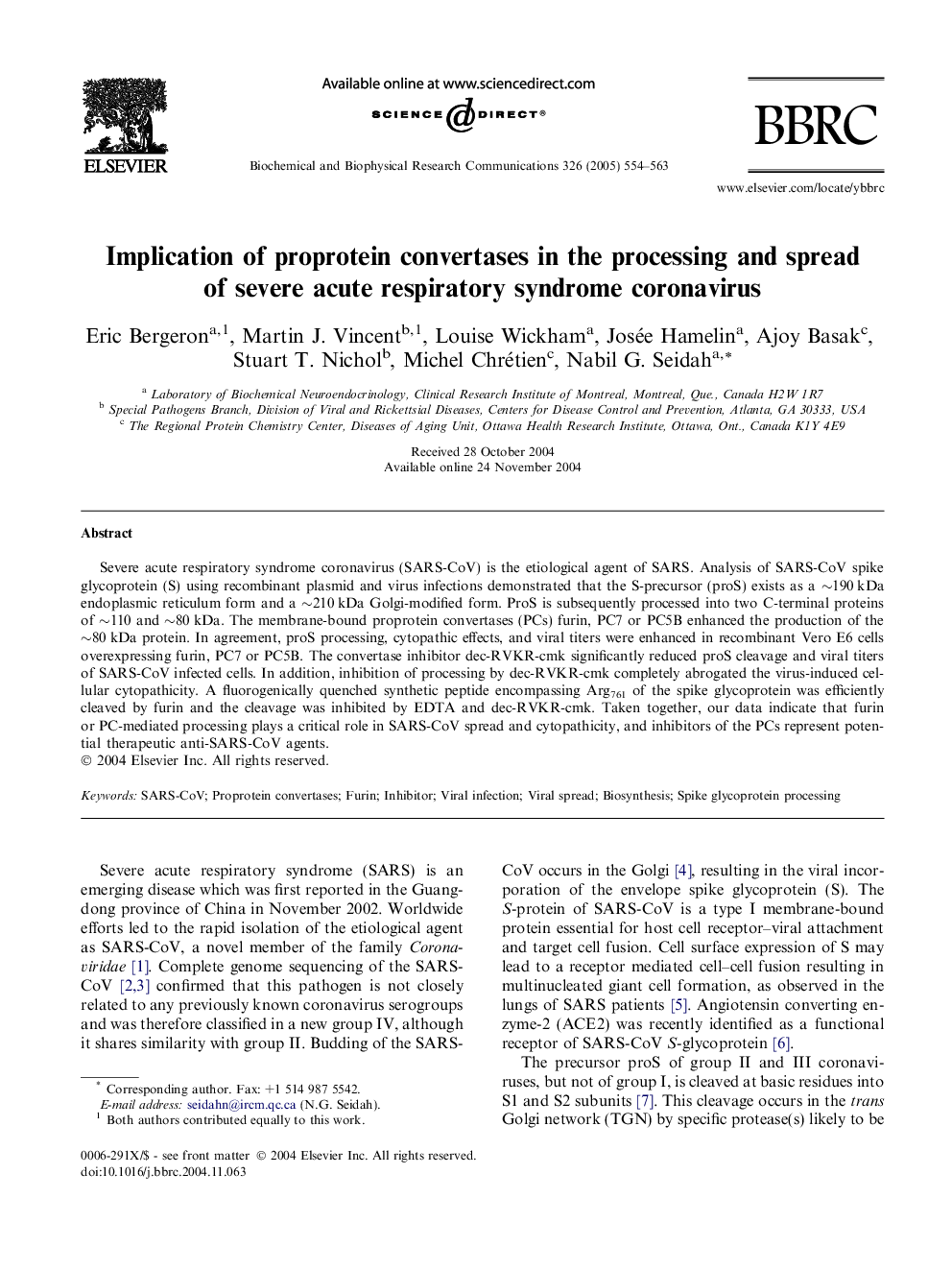| Article ID | Journal | Published Year | Pages | File Type |
|---|---|---|---|---|
| 10772278 | Biochemical and Biophysical Research Communications | 2005 | 10 Pages |
Abstract
Severe acute respiratory syndrome coronavirus (SARS-CoV) is the etiological agent of SARS. Analysis of SARS-CoV spike glycoprotein (S) using recombinant plasmid and virus infections demonstrated that the S-precursor (proS) exists as a â¼190Â kDa endoplasmic reticulum form and a â¼210Â kDa Golgi-modified form. ProS is subsequently processed into two C-terminal proteins of â¼110 and â¼80Â kDa. The membrane-bound proprotein convertases (PCs) furin, PC7 or PC5B enhanced the production of the â¼80Â kDa protein. In agreement, proS processing, cytopathic effects, and viral titers were enhanced in recombinant Vero E6 cells overexpressing furin, PC7 or PC5B. The convertase inhibitor dec-RVKR-cmk significantly reduced proS cleavage and viral titers of SARS-CoV infected cells. In addition, inhibition of processing by dec-RVKR-cmk completely abrogated the virus-induced cellular cytopathicity. A fluorogenically quenched synthetic peptide encompassing Arg761 of the spike glycoprotein was efficiently cleaved by furin and the cleavage was inhibited by EDTA and dec-RVKR-cmk. Taken together, our data indicate that furin or PC-mediated processing plays a critical role in SARS-CoV spread and cytopathicity, and inhibitors of the PCs represent potential therapeutic anti-SARS-CoV agents.
Related Topics
Life Sciences
Biochemistry, Genetics and Molecular Biology
Biochemistry
Authors
Eric Bergeron, Martin J. Vincent, Louise Wickham, Josée Hamelin, Ajoy Basak, Stuart T. Nichol, Michel Chrétien, Nabil G. Seidah,
